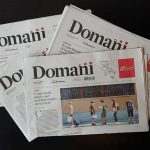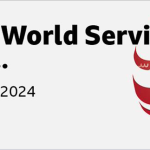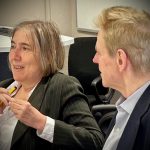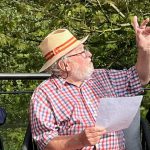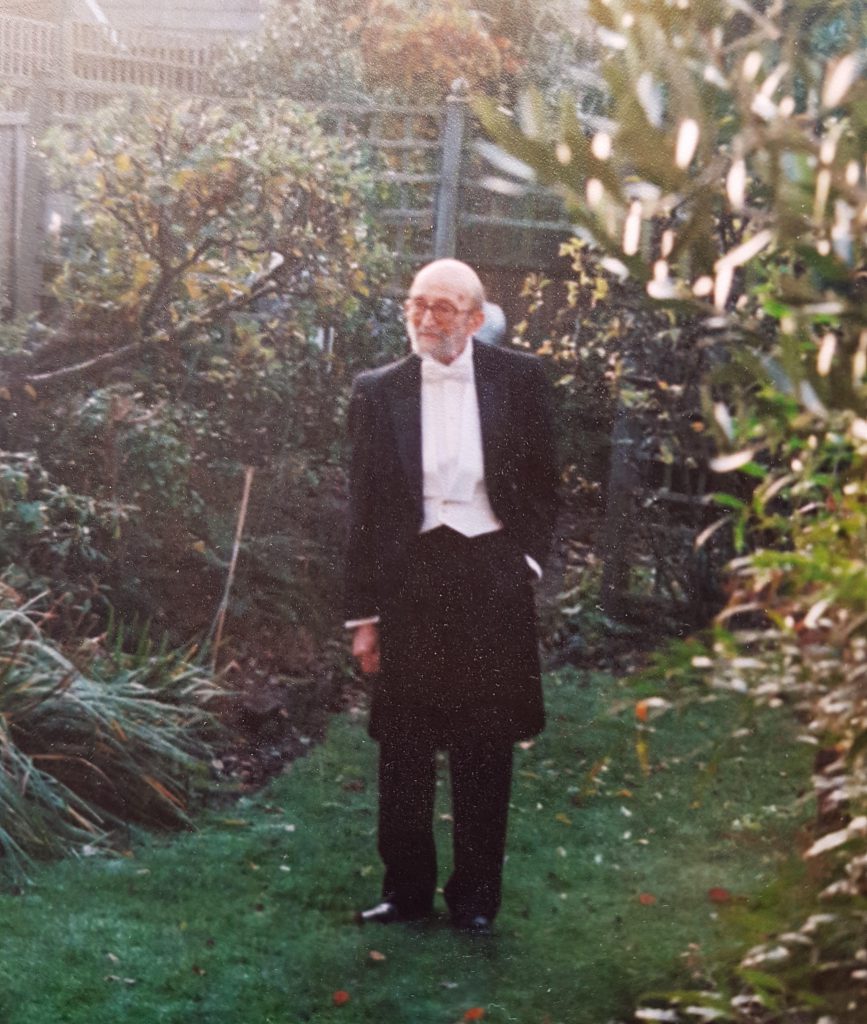
Former BBC World Service editor and executive, and noted interpreter of Turkish affairs, Andrew Mango died at home in Barnes on 7 July 2014.
AEJ member and former colleague Nevsal Hughes wrote:
Andrew Mango epitomised the true gentleman both in the Western and Eastern meaning of the word.
He was a very courteous person who made one feel very much at ease when you first met him.
I clearly remember the day I saw him for the first time, more than 41 years ago, when he interviewed me for the post of producer at the BBC Turkish Section.
With the latest English language current affairs magazines and newspapers tucked under my arm, as if to prove that my English was excellent, I – a young Turkish girl – went to our meeting in Istanbul. He was not interested in my knowledge of the English language.
As far as he was concerned it was a given.
He wanted to test my Turkish! He wanted to make sure of my knowledge of Turkish affairs and the Turkish language, and that my pronunciation of my mother tongue was perfect.
After all he was interviewing me for a medium where the spoken word was of utmost importance.
Andrew Mango was born in Istanbul on 14 June 1926, son of an Anglo-Russian Levantine family.
He was educated at the English High School in Istanbul.
He then went to Ankara at a young age to work as a translator at the British Embassy.
After his family moved to London he started his higher education at London University. Whilst still a student of Arabic and Persian at SOAS he joined the newly formed Turkish Section of the BBC.
He recalled with great humour the early days of the External Services, as the then vernacular language services of the World Service were called.
In those early days an odd medley of Turkish speakers from the London community had been recruited.
He took his doctorate in SOAS in Persian literature (where he discussed the Legend of Alexander) but then devoted his career to broadcasting.
He served as the Turkish Programme Organiser at Bush House, home of the BBC World Service, between 1958 and 1972.
He then became the Head of the South European Service where he worked until he retired in 1986.
His contact with the BBC continued after his retirement, being frequently invited for discussion programmes and interviews.
In his address to a Turkish audience on the occasion of the 70th anniversary of the foundation of the Turkish Section in 2009, he ended the summary of past achievements of the BBC with the words: “We are objective but we do not live on Mars.”
Andrew Mango’s knowledge of modern and Ottoman Turkish was exceptional.
Most Turkish academicians admired his vast vocabulary and knowledge of Turkish language and history, especially 19th and 20th century political history.
He knew the country of his birth better than most Turkish people.
He was acquainted, in most cases very closely, with Turkish writers and academicians and continued his contacts until he died.
After his retirement from the BBC he wrote a number of books on Turkey, the most acclaimed of which – Atatürk: the Biography of the Founder of Modern Turkey – was published in 1999.
He had sifted through archives which had not been delved into before and compared memoirs of Atatürk to arrive at, he hoped, the most realistic picture.
This comprehensive biography was translated into Turkish as well as into other languages.
A few months before his death Andrew told me that it was now being translated into Vietnamese, whereupon his wife Mary remarked that the Vietnamese people must have found they had a lot to learn from such a great man as Atatürk.
Andrew Mango, in my opinion, was the best Western interpreter of Turkish affairs.
He looked at the developments in Turkey not only through Western spectacles but also through Turkish lenses.
He was a staunch defender of the country of his birth which he thought was not properly understood in the West but at the same time never shied away from criticism.
After the publication of his last book in 2009, From the Sultan to Atatürk: Turkey, he continued with his book reviews and writings on Turkish affairs in many academic journals.
He was highly respected and valued in Turkey where he often travelled, at times to receive honorary doctorates from various Turkish universities.
He was a very modest person and did not seek fame; I feel he was undervalued, especially in the United Kingdom. This is exemplified by the large number of appreciations published in the Turkish media within 24 hours of his death.
Andrew Mango and his wife Mary were the perfect hosts, entertaining many of their friends at their home in Barnes, west London. A soft spoken man, Andrew enjoyed the company of friends and family and was very entertaining with the anectodes he told where he would enjoy many a laugh amongst the people he knew well.
At a dinner party at my home I recall his fellow guests helpless with laughter as he recounted his adventures when touring southern Turkey with a colleague, a well known Turkish poet, who was rarely sober.
He enjoyed his pipe, wine and good food although you would not know it when you saw his slim figure.
He liked to travel and also to read travel books.
He was an avid reader and had an exceptional memory.
He continued to read his daily papers until the last days of his life.
He enjoyed the company of his visitors, and especially liked to speak Turkish with his friends from the country he cherished. He was brilliant to the last.
Andrew Mango died peacefully at home on 7 July 2014. He is survived by his wife Mary, his son Benedict and daughter Daphne and four grandchildren. He will be sadly missed by friends at home and abroad.
Jonathan Fryer’s obituary of Andrew Mango in The Guardian
AEJ member and colleague Firdevs Robinson’s appreciation of Andrew’s scholarship and life

